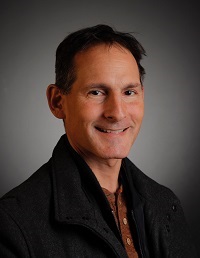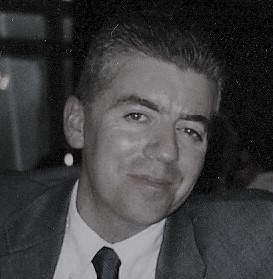ITEST Webinar
A New Understanding of Quantum Mechanics: Back to Aristotle and Aquinas
This webinar was presented on August 17, 2024
Our presenters
Sebastian Mahfood, OP, PhD
Introduction to Aristotelian-Thomistic Metaphysics

Dr. Sebastian Mahfood, OP, Director of ITEST, is a Lay Dominican of the Province of Saint Albert the Great. He has served as a professor of intercultural and interdisciplinary studies in theological education for over two decades. In 2021, he transitioned full-time to developing his publishing house, En Route Books and Media, LLC, and his radio station, WCAT Radio, the missions of which are to promote the Catholic spiritual journey in the provision of resources that assist in the formation of priests and laity. He lives in St. Louis with his wife, Dr. Stephanie Mahfood, and children, Alexander and Eva Ruth.
Abstract
“All men by nature desire to know. An indication of this is the delight we take in our senses” – so begins Aristotle’s Metaphysics, less a metaphysical statement than an epistemological one, but it sets the tone for everything that follows in terms of the third level of abstraction, being qua being, since it indicates the hylomorphic nature of man as both spiritual and material. The immaterial mind learns when the body, formed by the soul, perceives through its senses an ambient reality, generating a phantasm which no longer relies on the sensory impression. One need only touch fire once, for example, to get the idea of “hot.” Are there ways in which metaphysics can help us understand quantum mechanics? Certainly! And that is the subject of this talk.
Kenneth Francis
God and Quantum Theory

Kenneth Francis is a freelance journalist and Contributing Editor at New English Review. For the past 30 years, he has worked as an editor in various publications and print media, as well as a university professor in journalism. He also holds an MA in Theology and is the author of The Little Book of God, Mind, Cosmos and Truth (St Pauls Publishing); The Terror of Existence: From Ecclesiastes to Theatre of the Absurd (with Theodore Dalrymple); and Neither Trumpets Nor Violins (with Theodore Dalrymple and Samuel Hux).
Abstract
In understanding the universe, it seems that quantum theory, according to most physicists, is the final mysterious frontier of cosmic science. If so, I believe that this boundary can only be understood fully by a Mind possessing omniscience: God. The serpent in the Garden of Eden successfully conned Adam and Eve into believing they could achieve omniscience, and we all know what happened after that mother-of-all conceited errors. I often wonder did the serpent also tempt the ‘Adam and Eve’ scientists in Switzerland’s ‘Garden of CERN’, with its Large Hadron Collider in search of the so-called ‘God particle’. Even Mary Shelly’s novel Frankenstein was written by the shores of Lake Geneva, next door to CERN, with its potential for creating another Frankenstein’s monster.
Robert Kurland, PhD
A ‘New’ Understanding of Quantum Mechanics: Back to Aristotle and Aquinas

Dr. Robert Kurland (a convert to Catholicism in 1995) is a retired physicist who has applied magnetic resonance to problems of biological interest in his research (web search: “Kurland-McGarvey Equation”). He began to learn about quantum mechanics at Caltech (BS, “with honor,” 1951) and Harvard (MS,1953; Ph.D.,1956) from courses taught by Richard Feynman and Julian Schwinger. In teaching quantum mechanics to students at Carnegie-Mellon University and SUNY/AB he found that mathematical formalism of quantum mechanics was an obstacle to understanding. So, in his talk he will try to explain what quantum mechanics is about using a minimum of mathematics, as he did in his book Mysteries: Quantum and Theological.
Abstract
In this talk, I’ll give a brief, qualitative, pictorial explanation of quantum mechanics, from a historical perspective. Two mysteries of quantum mechanics (behavior not in accord with our everyday intuition), the wavelike nature of particles, and entanglement, will be illustrated in simple examples. I’ll examine how philosophers of science have recently used two concepts, actus (actus essendi) and potentia, to explain these mysteries and put them into a context of Aristotelian/Thomistic metaphysics.
Webinar resources
Does Quantum Mechanics Speak to Theology? by Robert Kurland, PhD
